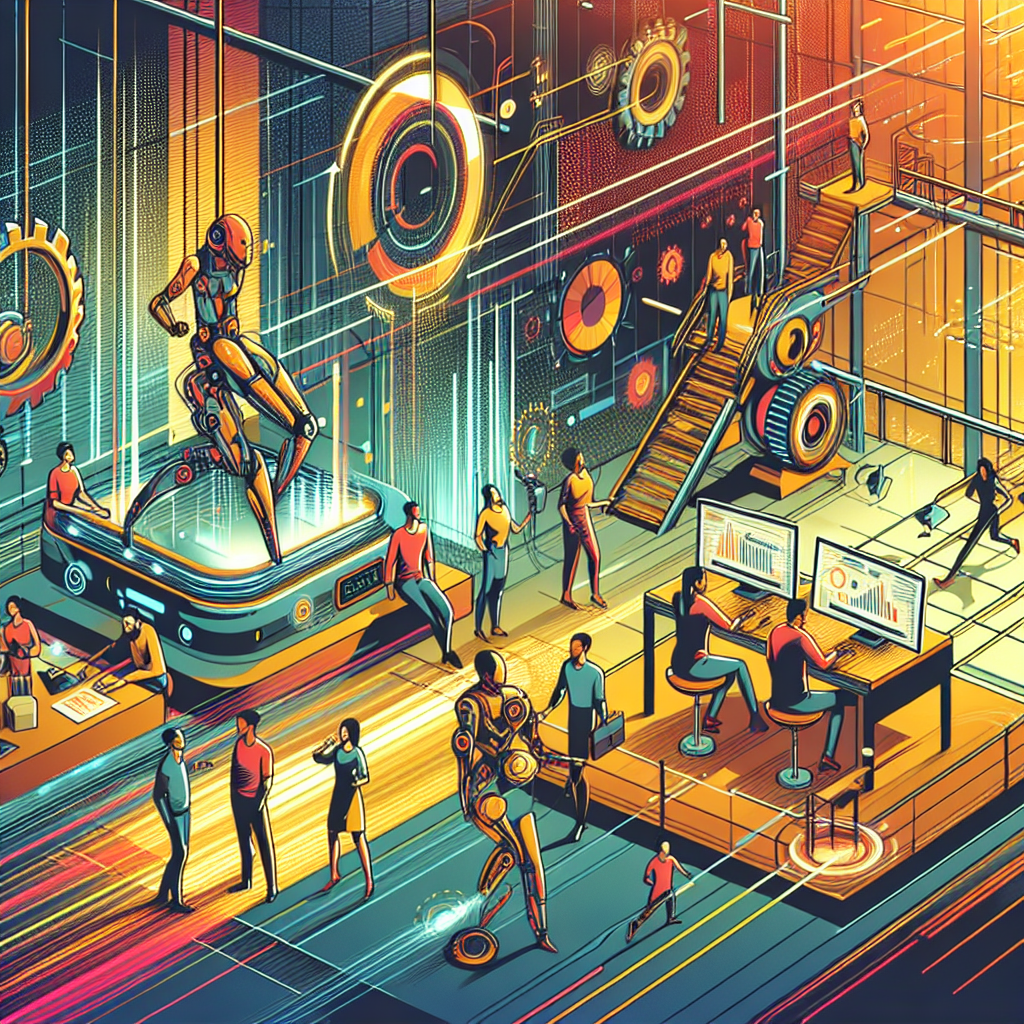In today’s fast-paced environment, productivity isn’t merely a trend; it’s vital. As we adapt to an ever-changing technological landscape, our working methods are undergoing significant shifts. From AI-powered tools to remote collaborative platforms, the future of productivity focuses not just on quantity, but on working intelligently. This article delves into how technology is transforming our work practices and explores what the future holds for productivity.
The Emergence of AI and Automation
Artificial intelligence (AI) and automation lead the charge in the productivity evolution. These innovations are crafted to manage repetitive and laborious tasks, freeing professionals to concentrate on strategic and creative endeavors.
Optimized Processes
Technologies like AI chatbots and automation tools can address customer queries, arrange meetings, and analyze data trends. This optimization of procedures minimizes time spent on mundane tasks, allowing employees to invest more in high-impact projects.
Intelligent Decision-Making
AI’s capacity to analyze large datasets provides actionable insights, empowering teams to make informed decisions. Predictive analytics tools can forecast market trends, enabling businesses to swiftly adjust their strategies.
Technologies for Remote Work
The COVID-19 pandemic has accelerated the shift toward remote working, and technology now plays a crucial role in ensuring smooth work-from-home experiences.
Collaboration Tools
Platforms such as Zoom, Microsoft Teams, and Slack are essential for maintaining communication and collaboration among remote teams. These tools facilitate real-time conversations, file sharing, and project management, diminishing the importance of geographical barriers.
Flexible Work Environments
Technology fosters flexible work arrangements as well. Virtual reality (VR) and augmented reality (AR) are emerging as impactful tools for crafting immersive meeting experiences, allowing teams to feel more connected despite physical distances.
Boosted Focus and Well-Being
With the merging of work and home life, keeping focus and well-being is increasingly vital. Technology is key in promoting a balanced work-life dynamic.
Distraction-Reducing Apps
Tools like Focus@Will and Forest help users manage interruptions and enhance concentration. Utilizing music or timing techniques, these applications support users in maintaining focus and productivity over extended periods.
Wellness Initiatives
Organizations are harnessing technology to encourage employee wellness via online fitness sessions, meditation apps, and mental health resources. By prioritizing well-being, companies enhance morale and, ultimately, productivity.
Data-Driven Performance Insights
Technology also enables the gathering and analysis of performance data, allowing organizations to more accurately measure productivity.
Instant Analytics
Performance management software provides immediate insights into both individual and team productivity. This information can identify areas for improvement and help formulate development plans tailored to employees’ strengths and weaknesses.
Improved Accountability
Automated tracking systems enhance accountability among team members. Employees can easily monitor their progress and establish measurable objectives, fostering a culture of transparency and ongoing improvement.
The Importance of Continuous Learning
As technology progresses, the necessity for upskilling only increases. Organizations invest in continuous learning programs to ensure their teams remain proficient in utilizing new tools and methodologies.
Online Learning Platforms
Platforms like Coursera and Udemy offer easy access to courses covering a wide range of subjects. Employees can continuously develop their skills, from software proficiency to soft skill enhancement, ensuring their productivity stays elevated.
Real-Time Knowledge Sharing
Technologies like wikis and intranets enable knowledge sharing within organizations. By leveraging collective intelligence, companies can promote innovation and efficiency.
Looking Forward: The Future of Productivity
Though technology has already significantly altered our working habits, the future looks even more promising.
Hybrid Work Settings
A blend of in-office and remote work is expected to become standard, with technology facilitating not just communication but also innovative collaboration.
Smart Technologies
Emerging solutions like 5G and the Internet of Things (IoT) will enhance connectivity and help create smarter work environments. Imagine workspaces where devices collaborate to optimize energy consumption and improve employee comfort.
Global Workforce Opportunities
The capability to work remotely opens access to a worldwide talent pool. Organizations can recruit top talent from anywhere, resulting in more diverse teams, which fosters creativity and productivity.
Conclusion
The future of productivity is dynamic and increasingly defined by technological progress. As businesses and individuals leverage these tools, they redefine productivity while cultivating work environments that emphasize well-being, collaboration, and continuous learning. This transformation is just beginning, and embracing these advancements is essential for thriving in the future of work.

